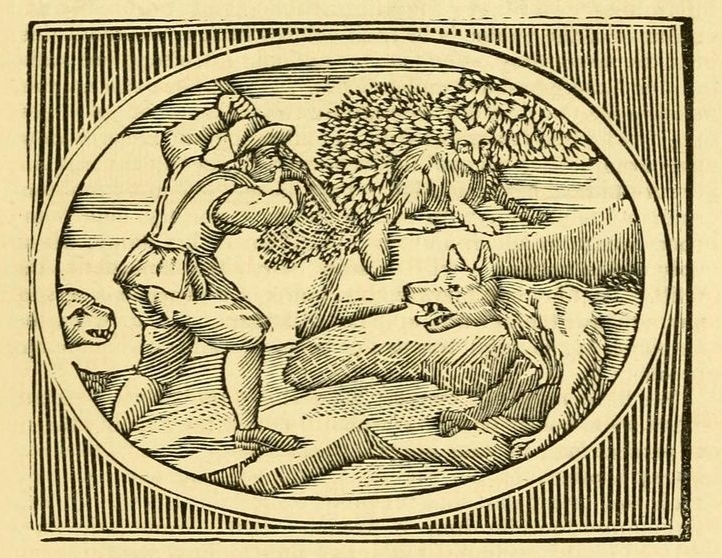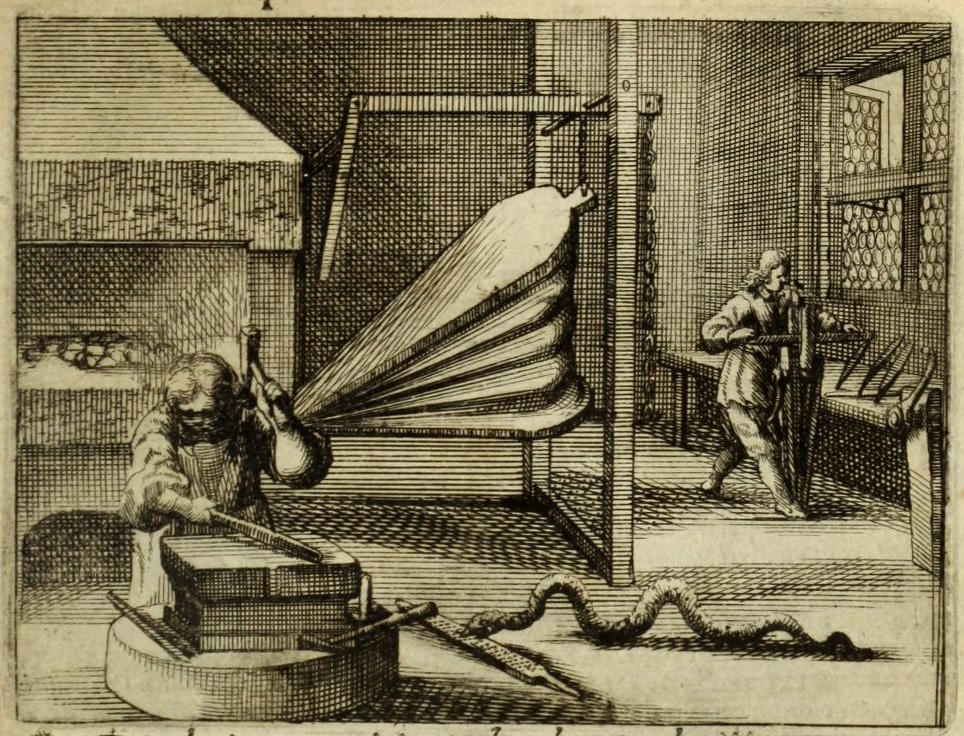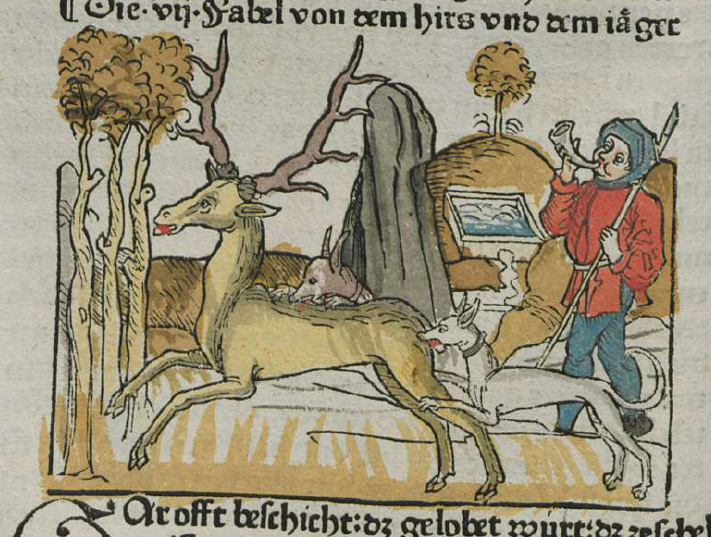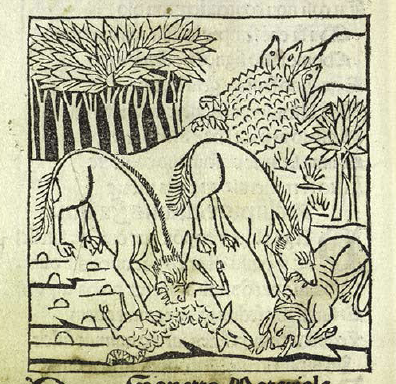26. Of the Wood and the Countryman
At what time there was speech even to trees, a countryman came into a wood, asks that it may be lawful to take a handle to his axe. The wood consents. The countryman, the axe being fitted, began to cut down the trees. Then, and indeed too late, it repented the wood of her easiness; it grieved her to be herself the cause of her own destruction.
Moral. See of whom thou mayest deserve well: there have been many who have abused a benefit received to the destruction of the author.

27. Of the Wolf and the Fox
The wolf, when there was enough of prey, lived in idlenes. The fox comes to him, demands the cause of his idleness. The wolf perceived there were treacheries, pretends a disease to be the cause, prays the fox to go to pray the Gods. She, grieving that the trick did not succeed, goes to the shepherd, advises him that the den of the wolf lay open, and the enemy being secure could be destroyed unawares. The shepherd rises upon the wolf, slays him. The fox obtains the den and the prey, but short was the joy of her villainy to her; for a little after, the same shepherd takes her.
Moral. Envy is a foul thing, and sometimes pernicious also to the author himself.

28. Of the Viper and the File
A viper, finding a file in a smith's shop, began to gnaw it; the file smiled, saying, "Fool, what dost thou do? Thou wilt have worn out thy teeth before thou wearest out me, who am wont to gnaw off the hardness of brass."
Moral. See again and again with whom thou hast an affair; if thou whettest thy tooth against a stronger man, thou wilt not hurt him, but thyself.

29. Of the Stag
A stag, having beheld himself in a clear fountain, approves his lofty and branched horns but condemns the smallness of his legs. By chance, whilst he looks, whilst he judges, the huntsman passes by: the stag flies away. The dogs pursue him flying, but when he had entered a thick wood, his horns were entangled in the boughs. Then at last he praised his legs and condemned his horns, which made that he was a prey to the dogs.
Moral. We desire things to be shunned, we fly things to be desired. What hurt, please; what profit, displease. We desire happiness, before that we understandmwhere it is; we seek the excellency of riches, and the loftiness of honours; we think happiness placed in these, in which there is so much of labour and pain.

30. Of the Wolves and the Lambs
On a time there was a league between the wolves and the lambs, to whom there is a discord by nature. Hostages being given on both sides, the wolves gave their whelps, the sheep their troop of dogs. The sheep being quiet and feeding, the little wolves through desire of their dams send forth howlings: Then the wolves rushing on them cry out that their faith and league was broken, and butcher the sheep destitute of their guard of dogs.
Moral. It is folly if in a league thou deliverest thy guards to an enemy; for he who has been an enemy, perhaps not yet has ceased to be an enemy; and perhaps will take occasion why he may rise upon thee stript of thy guard.

No comments:
Post a Comment
Comments are limited to Google accounts. You can also email me at laurakgibbs@gmail.com or find me at Twitter, @OnlineCrsLady.